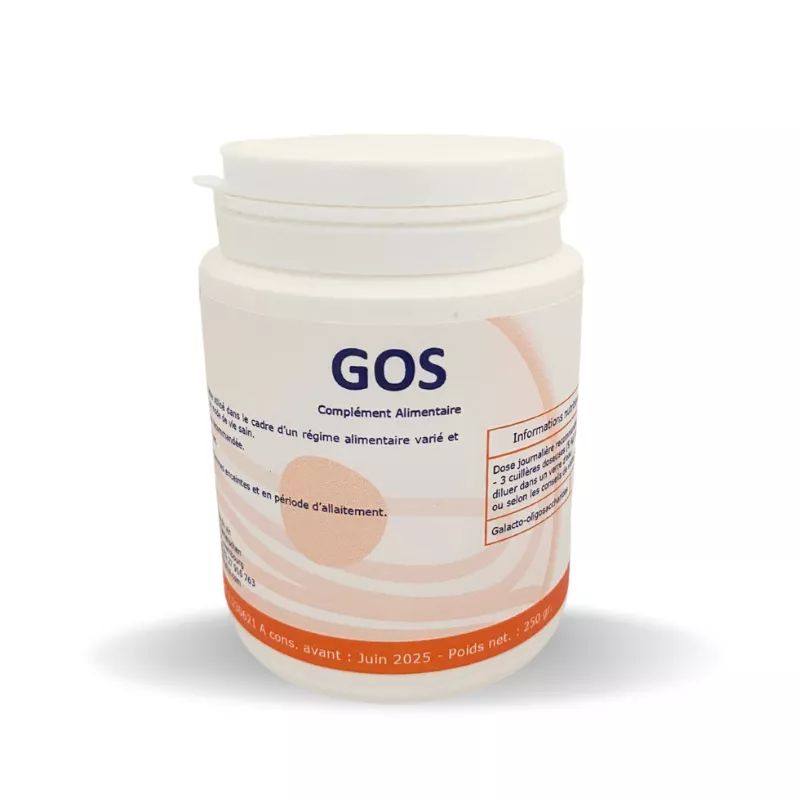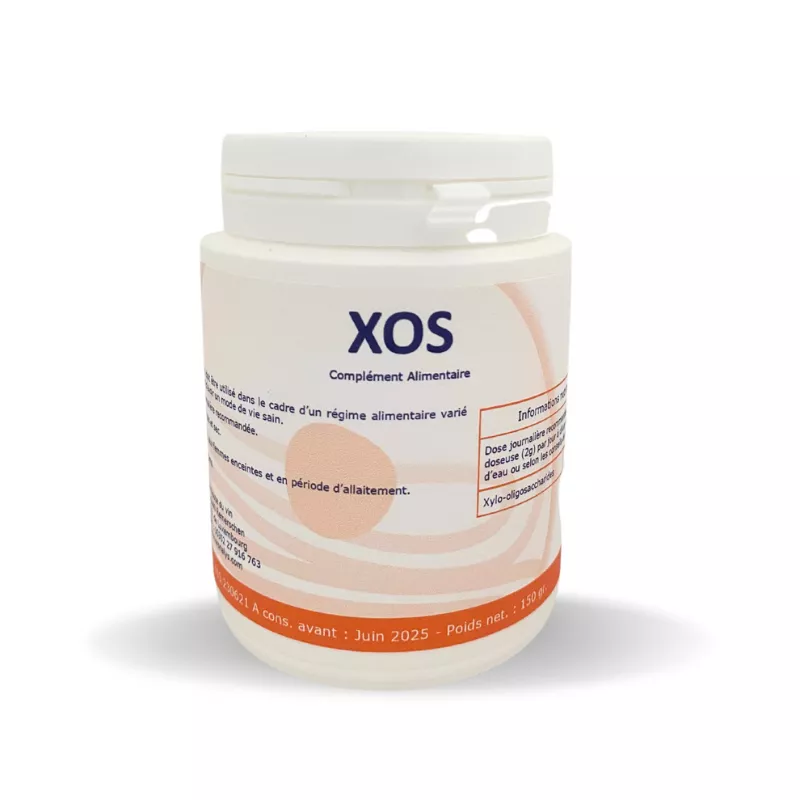Galacto-oligosaccharides (GOS) and xylo-oligosaccharides (XOS) are two types of oligosaccharides, which are short chains of carbohydrates. Oligosaccharides are complex carbohydrates composed of a few monosaccharide units linked together by glycosidic bonds. Oligosaccharides can be found in many natural foods such as fruits, vegetables, whole grains, dairy products, etc.
Certain oligosaccharides, such as GOS and XOS, act as prebiotics, which means that they serve as food for the beneficial bacteria present in the intestine, thus promoting their growth and activity. They can help maintain the balance of intestinal flora and promote good digestive health. Additionally, oligosaccharides may have immunomodulatory and antioxidant properties.
Galacto-oligosaccharides (GOS): GOS are prebiotics found naturally in certain foods, such as breast milk, legumes and some dairy products. They are chains of galactose units. We use GOS from milk, the best naturally occurring form. GOS supplementation has been shown to significantly stimulate the growth of bifidobacteria and lactobacilli.
Xylo-oligosaccharides (XOS): XOS are also prebiotics that are found naturally in certain foods, including whole grains, fruits and vegetables, and wood fibers. We use patented XOS obtained from non-GMO corn cobs by enzyme-catalyzed hydrolysis. XOS supplementation increases the growth of bifidobacteria.
GOS and XOS may affect the immune system by modulating immune cell activity and influencing the inflammatory response. Studies have shown that GOS and XOS can stimulate the proliferation and activity of beneficial immune cells, such as T cells and natural killer (NK) cells. This can help boost the body's immune response and support balanced immune function.
Studies have suggested that GOS and XOS can increase the activity of antioxidant enzymes, such as superoxide dismutase (SOD) and glutathione peroxidase (GPx), and reduce free radical damage.
Although GOS and XOS are made from different sugars, people with diabetes can safely consume them because they have minimal effect on blood sugar. They are generally considered to have a low glycemic index.
Galacto-oligosaccharides (GOS) and xylo-oligosaccharides (XOS) are considered safe and well tolerated. However, GOS and XOS are dietary fibers that may cause mild gastrointestinal upset in some susceptible individuals. These symptoms are usually temporary and improve over time as the body adapts to consuming these prebiotics. It is recommended to start taking a low dose then to increase it gradually.
GOS (Ref. 040.2), 250gr, 43€ XOS (Ref. 115), 100gr, 30€
Dosage: 10gr per day maximum Dosage: 2gr per day maximum
GOS and XOS can potentially interfere with the absorption or effectiveness of certain drugs. In rare cases, some people may have an allergy or sensitivity to GOS or XOS. It is always best to consult a medical professional for personalized recommendations.
- Psyllium Plantago 300mg (Ref. 093.2): The soluble fiber found in Psyllium Plantago may help support digestive health by nourishing beneficial bacteria found in the gut. These fibers ferment in the colon, producing short-chain fatty acids that are beneficial for gut health. Psyllium extract may also help reduce symptoms of irritable bowel syndrome, such as bloating and abdominal pain.
- Lactoferrin 400mg (Ref. 047.2): Lactoferrin may act as a prebiotic by promoting the growth and activity of beneficial gut bacteria, including bifidobacteria. Due to its antimicrobial and immunomodulatory properties, lactoferrin may help prevent or reduce intestinal infections caused by bacteria, viruses, or parasites.

 How to boost your immune system in winter: advice and solutions
How to boost your immune system in winter: advice and solutions
 Discover how we make your supplements - episode 1
Discover how we make your supplements - episode 1
 NEW - Palmitoylethanolamide (PEA)
NEW - Palmitoylethanolamide (PEA)
 WINTER PACK - Change of season
WINTER PACK - Change of season
 Video of the month - Hypercoagulation by Bruno Lacroix - October 2023
Video of the month - Hypercoagulation by Bruno Lacroix - October 2023

